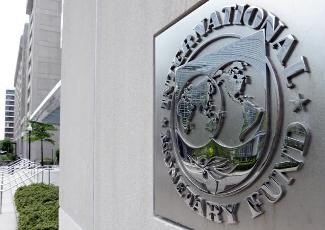IMF welcomes Sudan’s new economic policy but urges protection of the poor
July 25, 2012 (KHARTOUM) – The International Monetary Fund (IMF) has urged Sudan to pay “particular attention” to the protection of the poor pockets of society against the effects of the government’s response to the economic crisis that befell the country since the secession of oil-rich South Sudan last year.

Oil was the main source of state revenues and the loss dealt a strong blow to the economy which faces rising inflation that hit 37.2 percent in June, and a depreciating currency that led to the flourishing of the black market, despite multiple interventions by the Central Bank, which eventually allowed government-licensed Foreign Exchange Bureaus to devalue the pound in an attempt to match its value in the unofficial trade.
In response to the situation, the government introduced a set of austerity measures involving a 30 percent cut in fuel subsidies and a small reduction in the size of bureaucracy. The move led to exorbitant increases in prices and concomitant protests, to which the government responded violently, arresting hundreds of activists.
The IMF mission, which was led by Edward Gemayel, met with the country’s top economy officials including the minister of finance Ali Mahmoud Abdel-Rasool and the central bank governor Mohammed Khair Ahmad Al-Zubair.
In a statement issued at the end of the mission, Gemayel said that the IMF “welcomes the difficult but important” efforts made by Sudan in recent weeks to address the situation. According to the IMF official, the three-year emergency program adopted in the revised 2012 budget includes “important steps to raise non-oil revenue and consolidate expenditure while strengthening social safety nets”.
The IMF also commended the central bank’s new policy on exchange rate, saying it “will gradually help restore external stability”
Gemayel said the IMF underscores the need for continued policy reforms to ensure economic stability. However, he urged “particular attention” to measures that protect “the most vulnerable segments of the society” amid the current crisis.
Sudanese officials say the government has a plan to protect the poor from the effects of the austerity measures by increasing wages and social security programs.
(ST)
